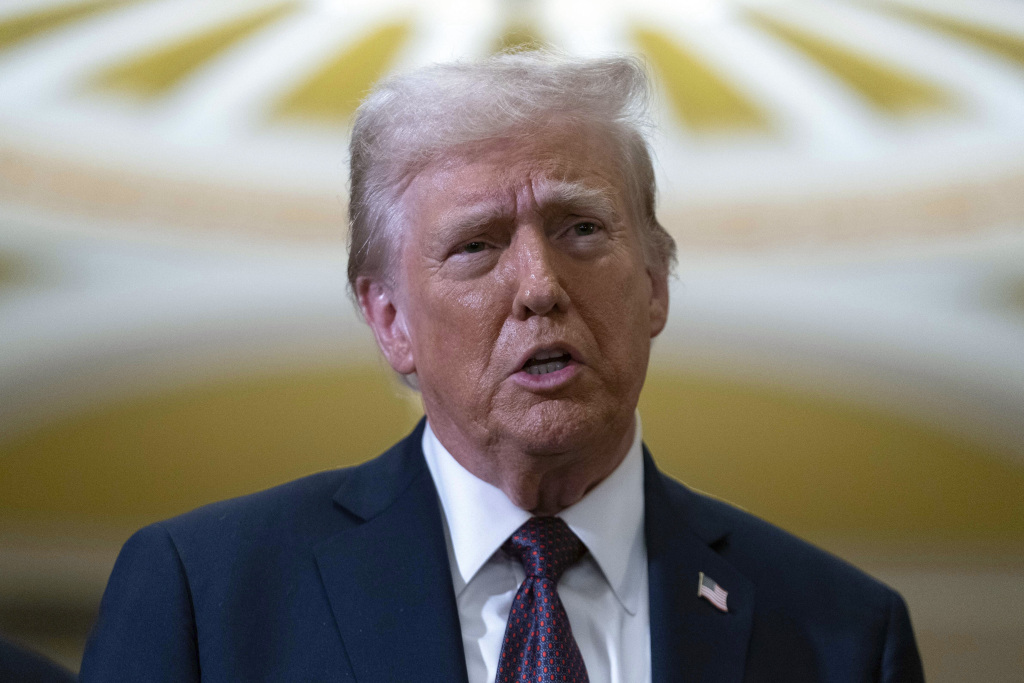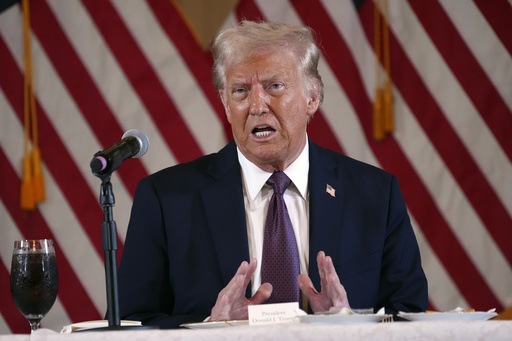President-elect Donald Trump’s transition team is shaking up the U.S. State Department in a move that could signal deep changes to come. Sources say Trump’s aides have asked three senior diplomats to resign from their high-ranking positions. The diplomats—Dereck Hogan, Marcia Bernicat, and Alaina Teplitz—are key figures who manage internal coordination and the workforce at the State Department.
This action comes ahead of Trump’s inauguration on January 20. Political appointees traditionally submit their resignations when a new president takes office. However, career diplomats like Hogan, Bernicat, and Teplitz usually stay on. These three have worked under both Republican and Democratic administrations, even serving as ambassadors.
Trump campaigned on a promise to “clean out the deep state,” and this latest move seems to follow through on that pledge. According to sources close to the matter, this could be just the beginning of a larger shakeup within the diplomatic corps.
Trump’s transition team makes their move
The Agency Review Team overseeing the State Department transition has asked the three senior diplomats to step down. This may signal further changes in the department.
A spokesperson for Trump’s transition team defended the move. They said it’s crucial for the new administration to have a team that shares Trump’s vision of prioritizing American workers. “We have many failures to fix, and that requires a team committed to the same goals,” the spokesperson said.
The State Department, however, offered no comment on the matter. Hogan, Bernicat, and Teplitz did not respond to requests for comment.

A controversial strategy
The decision raised concerns. One official familiar with the move worried it could lead to a much larger purge of State Department personnel. This isn’t the first time Trump’s team has shaken up the State Department. During his first term, several key officials were removed. Many fear this new push is part of a broader strategy to “clean house.”
Trump plans to adopt a more confrontational foreign policy. He’s already promised to support Israel more strongly, seek peace between Ukraine and Russia, and push NATO allies for higher defense spending. To achieve these goals, experts say, he’ll need a diplomatic workforce loyal to his agenda.
More political appointees incoming
Sources say Trump’s administration plans to increase the number of political appointees within the State Department. Positions like assistant secretary, typically filled by both career diplomats and political appointees, will see more political appointees appointed by Trump.
In interviews with candidates for these roles, Trump’s team is focused on finding individuals who align with his “America First” agenda. During his previous term, Trump’s aides felt his agenda was often blocked by career diplomats. Adding more loyal political appointees could help avoid that in the future.
The three diplomats asked to resign play crucial roles in managing the flow of information within the department. Hogan is the executive secretary, responsible for communication between bureaus and the White House. Bernicat is in charge of the U.S. Foreign Service and oversees recruitment and career development. Teplitz has served the department for decades and currently handles key administrative duties.
Breaking down the deep state
This latest shakeup comes as Trump’s pick for Secretary of State, Marco Rubio, testifies before the Senate Foreign Relations Committee. It’s clear that Trump’s administration is intent on reshaping the State Department to suit its goals.
In his campaign, Trump outlined how he would dismantle the so-called “deep state” and fire bureaucrats he deemed disloyal. One of his key proposals is to reintroduce a controversial executive order, called Schedule F, which would strip certain civil servants of their employment protections. This would make it easier to fire them and replace them with political allies.
Critics argue that Schedule F would politicize the federal bureaucracy, turning government employees into mere tools to carry out Trump’s agenda. Proponents, however, say it would help make the federal workforce more efficient and aligned with Trump’s vision.
The road ahead
If Trump moves forward with the Schedule F plan, it could allow him to fire up to 50,000 civil servants, replacing them with individuals who share his conservative values. Experts suggest this would speed up the process of appointing loyal officials within the State Department and beyond.
However, unions and government watchdog groups are already planning to challenge the reintroduction of Schedule F in court. They argue that it would undermine the independence of government employees and damage the integrity of the federal workforce.
Trump’s latest moves signal a more aggressive approach to reshaping the federal bureaucracy. Whether this will lead to smoother diplomacy or further disrupt the State Department remains to be seen. One thing is certain—Trump is determined to make his mark on U.S. foreign policy, and the department’s workforce will play a critical role in his success.



